Marathon running in North Korea, studying in China, mountain climbing in Tibet, Egypt, Pakistan and Argentina, witnessing the death of colleagues in war-torn Afghanistan, working Yemen and Papua New Guinea, Singapore, Myanmar and now based in Thailand. There’s much more too.
This Oxford-educated former journalist is unquestionably living life to the full.
Young, handsome and single, Robert Tyler must have been born under a wandering star. At 35 years old he has sought out enough travel and adventure to last several lifetimes, and he seems to have an attraction for the world’s more troubled spots.
The Canadian-born vagabond spent most of his early years in Hong Kong before heading off to the UK to attend high school. He’s hardly sat still since, although he did manage to earn a degree at Oxford and study Mandarin in Beijing.
A passion for mountaineering has led him to scale peaks around the globe, and he once ran a half marathon in Pyongyang, North Korea. His resume includes a stint working for DHL in war-torn Afghanistan, and his background made International SOS a perfect career fit. The private company specializes in reducing exposure to security and medical risks abroad for corporate clients, NGOs and government organizations.
Previously posted in Yemen, Papua New Guinea and Myanmar, Robert is now of head sales and marketing for International SOS in Bangkok, which he says is ‘‘the nicest place I have ever lived’’. Maxmilian Wechsler caught up with Robert recently to talk about his definitely not boring life.
Young, handsome and single, Robert Tyler must have been born under a wandering star. At 35 years old he has sought out enough travel and adventure to last several lifetimes, and he seems to have an attraction for the world’s more troubled spots.
The Canadian-born vagabond spent most of his early years in Hong Kong before heading off to the UK to attend high school. He’s hardly sat still since, although he did manage to earn a degree at Oxford and study Mandarin in Beijing.
A passion for mountaineering has led him to scale peaks around the globe, and he once ran a half marathon in Pyongyang, North Korea. His resume includes a stint working for DHL in war-torn Afghanistan, and his background made International SOS a perfect career fit. The private company specializes in reducing exposure to security and medical risks abroad for corporate clients, NGOs and government organizations.
Previously posted in Yemen, Papua New Guinea and Myanmar, Robert is now of head sales and marketing for International SOS in Bangkok, which he says is ‘‘the nicest place I have ever lived’’. Maxmilian Wechsler caught up with Robert recently to talk about his definitely not boring life.
Background
“I was born in Vancouver, Canada, in December 1983. My father is British but he was actually born in an army camp in Egypt. My grandfather was in the military. He grew up in South Africa, so, actually, I have UK citizenship but I am the third generation to be raised outside of the United Kingdom. I suppose you can say I was born into a military family.
In former times the ones sent off to look after the old British Empire were people from families like mine. “My father joined Cathay Pacific Airlines straight after university because keen to pursue opportunities outside of the UK, which was struggling economically at the time.
He lived in Japan, the Philippines, Italy and Canada, where I was born. Not long after that he was made a manager at Cathay Pacific headquarters in Hong Kong, where I did most of my growing up. Both my parents are alive. My mother is an artist and her father also served in the military in the UK and Europe during the Second World War. Her family is mostly from Scotland and I have wonderful memories of childhood there.
“I was bitten by the travel bug early. I was born in Canada, brought up in Hong Kong, and then as a young teenager I was sent to the same high school as my father, a small Catholic school in West Sussex. So at a young age I had experienced three continents. For me the world didn’t seem like such a big place and I didn’t find it so intimidating to go out and explore it after finishing university. Like my father, I attended Oxford university in the UK, where I studied theology.
“Studying at Oxford is very much like you’ve read about or seen in the movies. The place is a living museum. You are cramming in the same libraries, walking the same streets and drinking in the same pubs as famous Oxford alumni like J.R.R. Tolkien and C. S. Lewis. Really, it is like something out of a dream. But they make you work very hard, so a lot of the time you are too stressed and too busy to really appreciate it. Many people don’t know it, but Oxford is not expensive. The university is run through the government system. It is a meritocracy; placement is based on your grades.”
In former times the ones sent off to look after the old British Empire were people from families like mine. “My father joined Cathay Pacific Airlines straight after university because keen to pursue opportunities outside of the UK, which was struggling economically at the time.
He lived in Japan, the Philippines, Italy and Canada, where I was born. Not long after that he was made a manager at Cathay Pacific headquarters in Hong Kong, where I did most of my growing up. Both my parents are alive. My mother is an artist and her father also served in the military in the UK and Europe during the Second World War. Her family is mostly from Scotland and I have wonderful memories of childhood there.
“I was bitten by the travel bug early. I was born in Canada, brought up in Hong Kong, and then as a young teenager I was sent to the same high school as my father, a small Catholic school in West Sussex. So at a young age I had experienced three continents. For me the world didn’t seem like such a big place and I didn’t find it so intimidating to go out and explore it after finishing university. Like my father, I attended Oxford university in the UK, where I studied theology.
“Studying at Oxford is very much like you’ve read about or seen in the movies. The place is a living museum. You are cramming in the same libraries, walking the same streets and drinking in the same pubs as famous Oxford alumni like J.R.R. Tolkien and C. S. Lewis. Really, it is like something out of a dream. But they make you work very hard, so a lot of the time you are too stressed and too busy to really appreciate it. Many people don’t know it, but Oxford is not expensive. The university is run through the government system. It is a meritocracy; placement is based on your grades.”
Taking to the road
“While at Oxford I went on a field trip with my Greek professor to Israel and Palestine. This was in 2004, when I was 19. We were walking in the area near the Dead Sea and I asked him why it was so quiet and deserted. He said: ‘It’s because this is an Israeli army artillery range. Don’t worry, today is the Sabbath so no one will be firing anything’.
“We climbed Mount Sinai, which is located in Egypt’s Sinai Peninsula, and also went to the Golan Heights. I got a really great feeling for travel on this trip, especially within the Muslim world. I decided to take a course on Islamic studies at Oxford and after finishing the course I did a bit of traveling around the Muslim world. At that time, after 9/11 and the wars in Iraq and Afghanistan going strong, a lot of people were scared of traveling in Muslim countries. But in a way this peaked my interest. I wanted to see why there was such a perception that these places are so dangerous.
“I graduated from Oxford in 2006 and decided to take a year off. During that time I traveled to South America. My plane landed in Argentina and I thought the climate would be tropical, like in the Caribbean. So I arrived in a pair of shorts and a T-shirt. It was in September and there was snow on the ground.
“I traveled the length of South America by bus. I really fell in love with Colombia. It’s a beautiful place. Fantastic diving, great history, mountains, it’s got everything. Naturally, I have been back.
“I had some money left from student loans to finance the South America trip. Afterward I decided that I didn’t really want to start working yet. Theology is an interesting degree it but it doesn’t really have a lot of value in the labor market. I negotiated with my father to keep giving me pocket money as long as I was continuing my education. I enrolled in Beijing Language and Culture University and studied Mandarin Chinese for a year.
“At the same time I was working part time as a journalist for the Russian Interfax News Agency. The bureau chief had been in China for a long time – he was there during the Tiananmen Square riots. I took a private trip to Xinjiang in the very western part of China, which is heavily Muslim. I liked it there so much that I decided to enroll at the university at Ürümqi in Xinjiang to continue my Mandarin studies.
“I took some other trips around that time. I traveled along the border of Afghanistan and did some trekking and climbing in the north of Pakistan for six weeks. I also went to Tibet and did a lot of hiking and trekking there as well. In fact, I circumambulated Mount Kailash, the holiest mountain of Tibetan Buddhism. I got lost and nearly died. I spent the night upon a pass in a storm. After the sun came up I realized I had gone about three kilometers off course but I had managed to come all the way around the mountain. One revolution of the mountain within 24 hours is not recommended,” said Robert wryly.
“We climbed Mount Sinai, which is located in Egypt’s Sinai Peninsula, and also went to the Golan Heights. I got a really great feeling for travel on this trip, especially within the Muslim world. I decided to take a course on Islamic studies at Oxford and after finishing the course I did a bit of traveling around the Muslim world. At that time, after 9/11 and the wars in Iraq and Afghanistan going strong, a lot of people were scared of traveling in Muslim countries. But in a way this peaked my interest. I wanted to see why there was such a perception that these places are so dangerous.
“I graduated from Oxford in 2006 and decided to take a year off. During that time I traveled to South America. My plane landed in Argentina and I thought the climate would be tropical, like in the Caribbean. So I arrived in a pair of shorts and a T-shirt. It was in September and there was snow on the ground.
“I traveled the length of South America by bus. I really fell in love with Colombia. It’s a beautiful place. Fantastic diving, great history, mountains, it’s got everything. Naturally, I have been back.
“I had some money left from student loans to finance the South America trip. Afterward I decided that I didn’t really want to start working yet. Theology is an interesting degree it but it doesn’t really have a lot of value in the labor market. I negotiated with my father to keep giving me pocket money as long as I was continuing my education. I enrolled in Beijing Language and Culture University and studied Mandarin Chinese for a year.
“At the same time I was working part time as a journalist for the Russian Interfax News Agency. The bureau chief had been in China for a long time – he was there during the Tiananmen Square riots. I took a private trip to Xinjiang in the very western part of China, which is heavily Muslim. I liked it there so much that I decided to enroll at the university at Ürümqi in Xinjiang to continue my Mandarin studies.
“I took some other trips around that time. I traveled along the border of Afghanistan and did some trekking and climbing in the north of Pakistan for six weeks. I also went to Tibet and did a lot of hiking and trekking there as well. In fact, I circumambulated Mount Kailash, the holiest mountain of Tibetan Buddhism. I got lost and nearly died. I spent the night upon a pass in a storm. After the sun came up I realized I had gone about three kilometers off course but I had managed to come all the way around the mountain. One revolution of the mountain within 24 hours is not recommended,” said Robert wryly.
Working in a war zone
“At the end of this time in China I had to get a job. My father was losing enthusiasm for funding my studies because he noticed I seemed to be spending most of my time travelling. I applied for a job with a shipping company. It was a Chinese company, but they sent me straight to the Middle East. I was there for six months and during that time I visited Yemen for the first time. I was in Sanaa, the largest city.
I came to the realization that I didn’t want to be in shipping. I saw an online advertisement for a job running a logistics base for DHL in Afghanistan, and I soon find myself on an airplane to Afghanistan. As nobody else applied for the job, I got it. I remember flying in this cargo plane and looking down below. All I could see was desert. I was thinking it made no sense to fight a war in a place like this, that just surviving in such conditions would make life extremely difficult.
“I flew to a coalition air force base in Afghanistan and I saw that the Americans had built a Pizza Hut, a Coffee Bean and a Subway Sandwich outlet. I wondered who would be stupid enough to pick a fight with people who can do all this in the middle of the mountains north of Kabul.
“Afghanistan was a country I had read a lot about and always wanted to see. And there I was working for a big global company. I was pretty excited, but obviously my parents looked at it differently. When I told them over the phone that I had a job in Afghanistan working for a big company they just went silent for a while. I was in Afghanistan for over a year in 2008- 2009 living on various coalition bases.
“It was quite a difficult and stressful operation we ran there. During this time the Iraq conflict started deescalating, but things suddenly ramped up in Afghanistan.
“The huge airfield I was working at was used to ship bodies of fallen soldiers back home. Everyone stopped working and there would be a ceremony. It went from about every month to every week to almost every day for a while. It was depressing.
“Sadly, in one violent attack one of my managers and two of my colleagues were shot to death. Overnight I suddenly had a lot more responsibilities and I was required to travel around the country a lot. It was a pretty tough time, especially for my family. They saw on the news that a team of foreigners had been attacked and some were killed, and for a while they didn’t know if I was one of them.
After that the job became even more dynamic, I had to travel around the country, especially in the south, where there was a big increase in activity. I was also kept very busy with logistics work.
“We were shipping general freight, supplying the coalition and aid agencies, and everything needed for embassies and consulates and so on. It was a big mixture of things. The job was mainly just making sure that all the foreign and local organizations operating in these areas had all their equipment. There was a huge amount of construction and rural development activity going on and we were coordinating with project leaders to make sure they had everything they needed.”
It was a lot to keep track of to say the least, and there were occasional slipups. “Once we actually had to ship in pieces of art for an NGO that was doing an art exhibition in one of the embassies in Kabul. The shipment was accidentally sent to Kandahar, which was then a centre of some fighting. The gallery owner wasn’t very happy when she picked up the phone and was told that her art works were sitting in Kandahar,” Robert said.
“Also I actually went to do some disaster relief with the DHL in Pakistan during the floods in 2010. Some of the skills I have learned in Afghanistan like the field management and logistics, I was able to get to Pakistan and to provide two weeks of support and assistance during flooding.
“The pay wasn’t high at all, but the benefits for me were that I got to live and work in an interesting part of the world and I was given a lot of responsibility. I was in charge of more than one hundred people at the age of 26. But the real reason I wanted to be there is that I wanted to test myself. That’s exactly what I got from my 18 months there. In 2009 I managed to get an internal transfer with DHL to Singapore. I remember I had to do my interview for the transfer in a bomb shelter because the area I was in was under mortar attack.
“When I was in Singapore I realized that I really missed my people, mainly the Afghans who I’d worked with every day. They were incredibly playful and full of fun. I also missed the sense of mission and the hardship. I did get the chance to make some interesting trips. One was to Iran for three weeks. Because I travelled on my Canadian passport, I was able to go there without being without a minder. I did a lot of climbing in Iran, which was amazing.
‘But overall, the work in Singapore didn’t appeal to me. My boss was fantastic. She said to me, ‘I see that you are not happy. You should look at this company. They do interesting work’. She was talking about International SOS, and she was right. I knew this was a company I could work for.
I came to the realization that I didn’t want to be in shipping. I saw an online advertisement for a job running a logistics base for DHL in Afghanistan, and I soon find myself on an airplane to Afghanistan. As nobody else applied for the job, I got it. I remember flying in this cargo plane and looking down below. All I could see was desert. I was thinking it made no sense to fight a war in a place like this, that just surviving in such conditions would make life extremely difficult.
“I flew to a coalition air force base in Afghanistan and I saw that the Americans had built a Pizza Hut, a Coffee Bean and a Subway Sandwich outlet. I wondered who would be stupid enough to pick a fight with people who can do all this in the middle of the mountains north of Kabul.
“Afghanistan was a country I had read a lot about and always wanted to see. And there I was working for a big global company. I was pretty excited, but obviously my parents looked at it differently. When I told them over the phone that I had a job in Afghanistan working for a big company they just went silent for a while. I was in Afghanistan for over a year in 2008- 2009 living on various coalition bases.
“It was quite a difficult and stressful operation we ran there. During this time the Iraq conflict started deescalating, but things suddenly ramped up in Afghanistan.
“The huge airfield I was working at was used to ship bodies of fallen soldiers back home. Everyone stopped working and there would be a ceremony. It went from about every month to every week to almost every day for a while. It was depressing.
“Sadly, in one violent attack one of my managers and two of my colleagues were shot to death. Overnight I suddenly had a lot more responsibilities and I was required to travel around the country a lot. It was a pretty tough time, especially for my family. They saw on the news that a team of foreigners had been attacked and some were killed, and for a while they didn’t know if I was one of them.
After that the job became even more dynamic, I had to travel around the country, especially in the south, where there was a big increase in activity. I was also kept very busy with logistics work.
“We were shipping general freight, supplying the coalition and aid agencies, and everything needed for embassies and consulates and so on. It was a big mixture of things. The job was mainly just making sure that all the foreign and local organizations operating in these areas had all their equipment. There was a huge amount of construction and rural development activity going on and we were coordinating with project leaders to make sure they had everything they needed.”
It was a lot to keep track of to say the least, and there were occasional slipups. “Once we actually had to ship in pieces of art for an NGO that was doing an art exhibition in one of the embassies in Kabul. The shipment was accidentally sent to Kandahar, which was then a centre of some fighting. The gallery owner wasn’t very happy when she picked up the phone and was told that her art works were sitting in Kandahar,” Robert said.
“Also I actually went to do some disaster relief with the DHL in Pakistan during the floods in 2010. Some of the skills I have learned in Afghanistan like the field management and logistics, I was able to get to Pakistan and to provide two weeks of support and assistance during flooding.
“The pay wasn’t high at all, but the benefits for me were that I got to live and work in an interesting part of the world and I was given a lot of responsibility. I was in charge of more than one hundred people at the age of 26. But the real reason I wanted to be there is that I wanted to test myself. That’s exactly what I got from my 18 months there. In 2009 I managed to get an internal transfer with DHL to Singapore. I remember I had to do my interview for the transfer in a bomb shelter because the area I was in was under mortar attack.
“When I was in Singapore I realized that I really missed my people, mainly the Afghans who I’d worked with every day. They were incredibly playful and full of fun. I also missed the sense of mission and the hardship. I did get the chance to make some interesting trips. One was to Iran for three weeks. Because I travelled on my Canadian passport, I was able to go there without being without a minder. I did a lot of climbing in Iran, which was amazing.
‘But overall, the work in Singapore didn’t appeal to me. My boss was fantastic. She said to me, ‘I see that you are not happy. You should look at this company. They do interesting work’. She was talking about International SOS, and she was right. I knew this was a company I could work for.
A new mission
| “I interviewed in Singapore where they are based and joined the company in 2010. International SOS is the world’s largest medical and security risk management company. I was first assigned to go to Yemen. At the time – it was during the ‘Arab Spring’ the situation was starting to get more serious there. They were looking for a branch manager to work in Yemen who was single and didn’t have a family. I was single and had experience in Afghanistan working in a hardship area, and I had been to Yemen before. So they were comfortable with sending me there and I was very happy to go. “However, before I went the company landed a very large gas project for Exxon Mobil in Papua New Guinea, and they needed someone with logistics experience who could move freight around difficult locations. I was supposed to be there for three months but I stayed for a year. “We set up medical clinics all over the PNG for all of the workers on this Exxon project. One site alone had 50,000 workers. It was a huge project. We did really good work there and I‘m sure we prevented many thousands of people from contracting malaria. |
| “In 2011 I was finally posted to Yemen, and it was getting seriously unstable by then. My movement was restricted even though I had three bodyguards. Our main client’s security manager was shot and badly injured, but he survived. I was evacuated after a year because it just became too unstable. “The timing of my departure from Yemen couldn’t have been better, because shortly before I left, Barak Obama went to Myanmar and made a deal with the military government there to hold democratic elections in exchange for the US removing longstanding economic sanctions. Basically, Myanmar was open for business. “We already had long-standing customers in Myanmar, but we were suddenly looking to expand operations. I felt very fortunate when I was shifted to Myanmar, back to my home territory of Asia. I got cracking on growing our business, and stayed in Myanmar from 2012 to 2017. I went to North Korea in April 2015 to run a half marathon in Pyongyang. I will never do full marathon because I am not fit enough. “The great thing about running around Pyongyang in the event was that sometimes I found myself completely on my own. It is very rare for a foreigner to be without a chaperon or minder in this beautiful city. I was there a year before the American chap, Otto Warmbier, got arrested. In fact, we stayed in the same hotel he did.” |
Based in Bangkok
“I thought I would be based in Myanmar forever, but I was offered the chance to come to Bangkok to take care of sales and marketing and I was happy to accept. Thailand is obviously a center of gravity for Southeast Asia. The economy is strong and there is a very enterprising and ambitious labor force here.
Some big Thai companies are looking to expand abroad, and that’s where International SOS comes in. I had already
worked with some of these Thai companies in Myanmar.
“We also look after Laos from here. Laos is very much like Myanmar was a few years ago in terms of medical resourcing and general travel risk. So this is a nice fit for me. I am able to work in a more developed market, but in Laos I’m also able to make use of some strengths gotten from working in developing countries.”
Robert is still single, and besides travel and mountaineering he also enjoys reading in his spare time. He holds British and Canadian passports and has permanent residency in Hong Kong. He can speak but not write Mandarin and can communicate in Dari, which is an Afghan dialect of the Persian language. He has been to more than 60 countries, but says most of his travels these days are work-related. Nevertheless, last year he made a trip to Argentina to climb Mount Aconcagua, which at 6,960.8 meters is the highest mountain in both the Southern and Western hemispheres, and this year he plans to scale Denali, the highest mountain in North America.
“When I am training in Lumpini Park I long for some cold weather, but when I am up on a high mountain I wish I was in Thailand,” said Robert. In fact, he seems very happy all-around with his new home. “I have to say, Thailand is by far the nicest place I have ever lived and worked, even compared to Singapore.
“Thailand is just fantastic in terms of natural beauty, culture and dynamism. If you are not enjoying Bangkok then you have only yourself to blame. All the ingredients for a fantastic life are here. Also, I am a big believer in the way the Thai economy is going. You see big Thai brands spreading outside the country, and this is a great for us because it means we can help them operate safely abroad.”
Robert says the turning point in his career was when he found himself in Singapore. He missed the sense of mission he had in Afghanistan. ‘‘I learned something about myself. It took a lot of soul searching to realize that my satisfaction in terms of work is dependent on whether or not there is a positive human result at the end of the day. I want to have a positive impact on someone’s life in whatever way. That’s why I loved working in Afghanistan even with all the perils, and that’s why I landed a role in the assistance business. We know that at the end of the day we have made someone’s life better and we know that someone appreciates what we’ve done.”
Robert concluded the interview by saying: “I don’t plan too far in advance. I work for an organization that understands my interests and my strengths, so it is always a joint decision where I go next. I am happy to stay in Thailand and serve our clients in Thailand for the foreseeable future, until I am needed somewhere else.”
Instagram: @offtheradarphotography
Some big Thai companies are looking to expand abroad, and that’s where International SOS comes in. I had already
worked with some of these Thai companies in Myanmar.
“We also look after Laos from here. Laos is very much like Myanmar was a few years ago in terms of medical resourcing and general travel risk. So this is a nice fit for me. I am able to work in a more developed market, but in Laos I’m also able to make use of some strengths gotten from working in developing countries.”
Robert is still single, and besides travel and mountaineering he also enjoys reading in his spare time. He holds British and Canadian passports and has permanent residency in Hong Kong. He can speak but not write Mandarin and can communicate in Dari, which is an Afghan dialect of the Persian language. He has been to more than 60 countries, but says most of his travels these days are work-related. Nevertheless, last year he made a trip to Argentina to climb Mount Aconcagua, which at 6,960.8 meters is the highest mountain in both the Southern and Western hemispheres, and this year he plans to scale Denali, the highest mountain in North America.
“When I am training in Lumpini Park I long for some cold weather, but when I am up on a high mountain I wish I was in Thailand,” said Robert. In fact, he seems very happy all-around with his new home. “I have to say, Thailand is by far the nicest place I have ever lived and worked, even compared to Singapore.
“Thailand is just fantastic in terms of natural beauty, culture and dynamism. If you are not enjoying Bangkok then you have only yourself to blame. All the ingredients for a fantastic life are here. Also, I am a big believer in the way the Thai economy is going. You see big Thai brands spreading outside the country, and this is a great for us because it means we can help them operate safely abroad.”
Robert says the turning point in his career was when he found himself in Singapore. He missed the sense of mission he had in Afghanistan. ‘‘I learned something about myself. It took a lot of soul searching to realize that my satisfaction in terms of work is dependent on whether or not there is a positive human result at the end of the day. I want to have a positive impact on someone’s life in whatever way. That’s why I loved working in Afghanistan even with all the perils, and that’s why I landed a role in the assistance business. We know that at the end of the day we have made someone’s life better and we know that someone appreciates what we’ve done.”
Robert concluded the interview by saying: “I don’t plan too far in advance. I work for an organization that understands my interests and my strengths, so it is always a joint decision where I go next. I am happy to stay in Thailand and serve our clients in Thailand for the foreseeable future, until I am needed somewhere else.”
Instagram: @offtheradarphotography

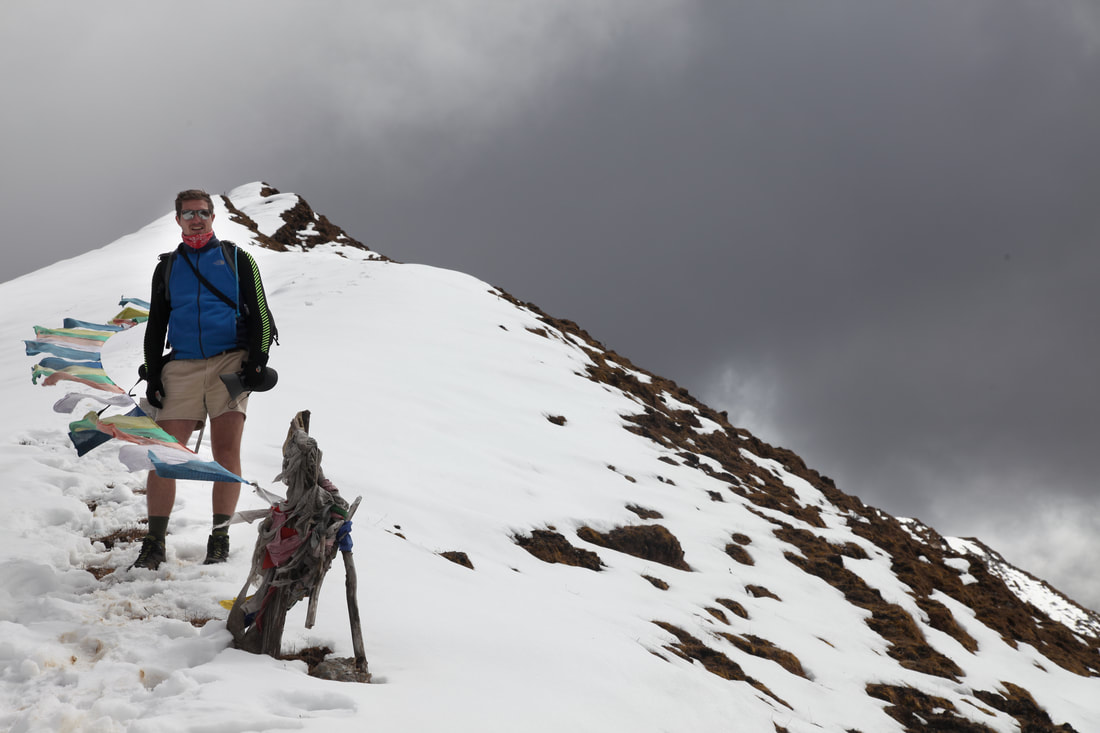
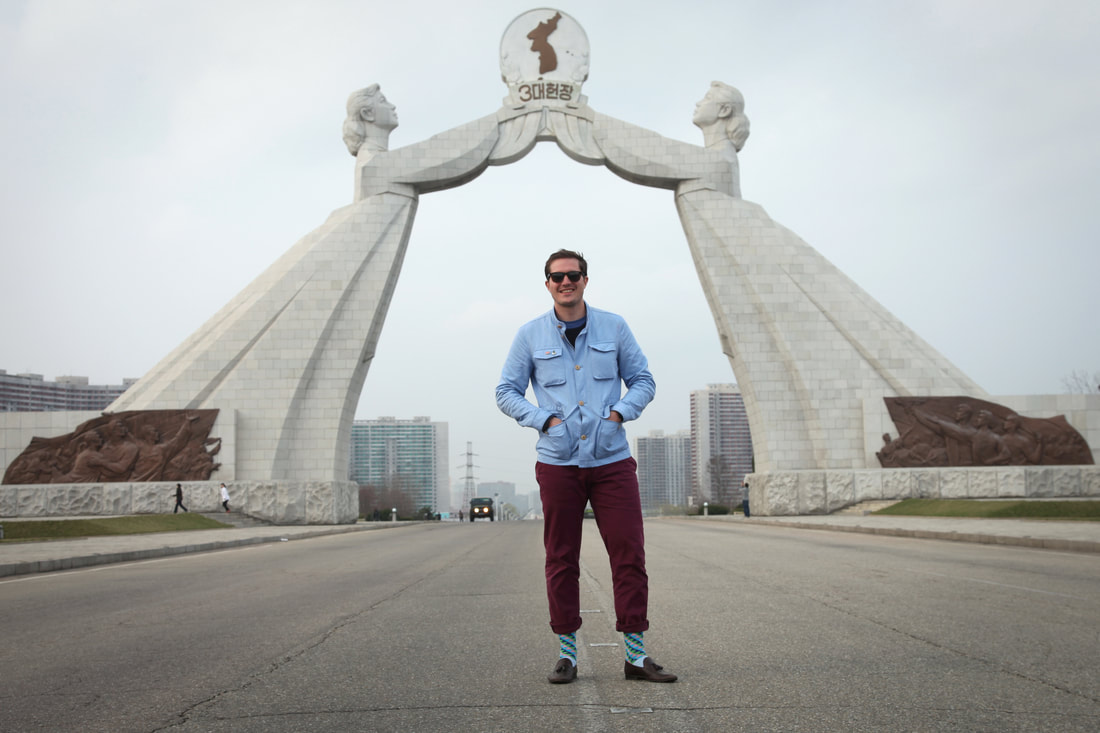
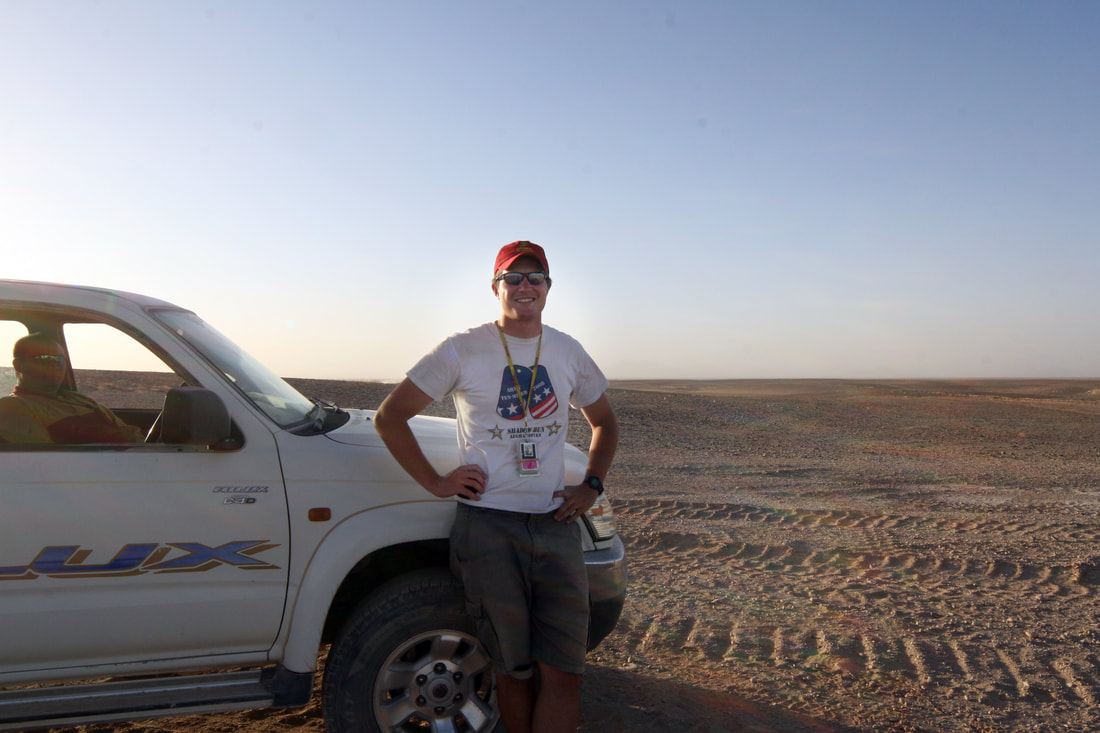
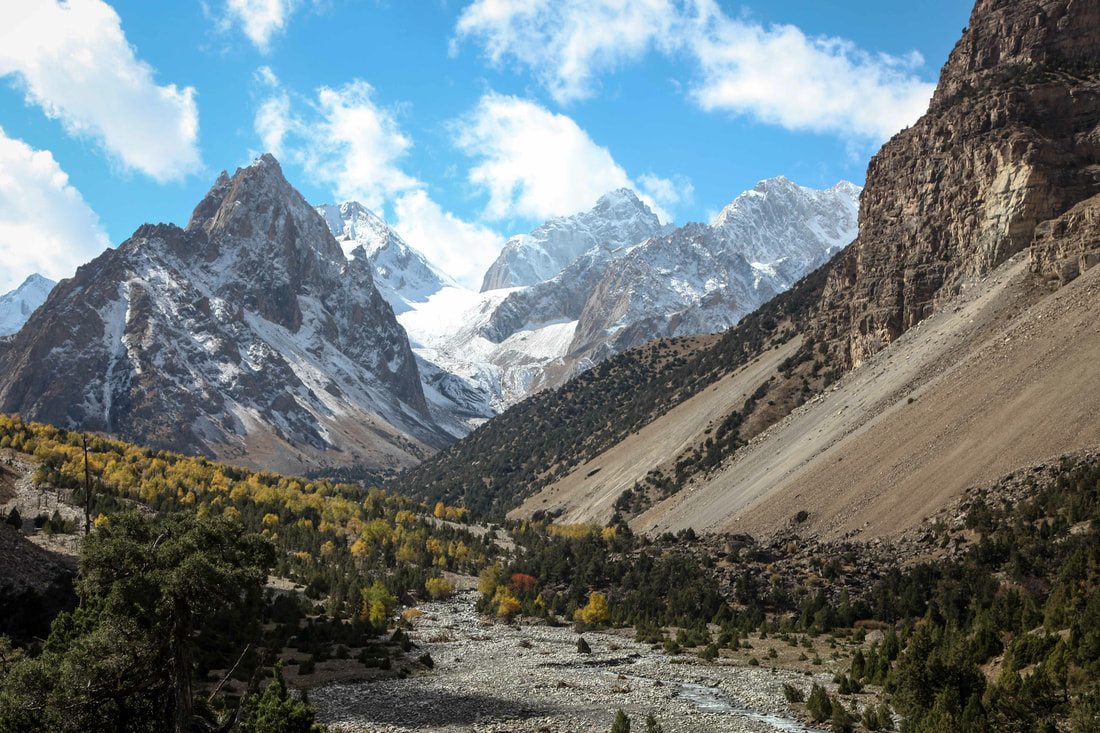
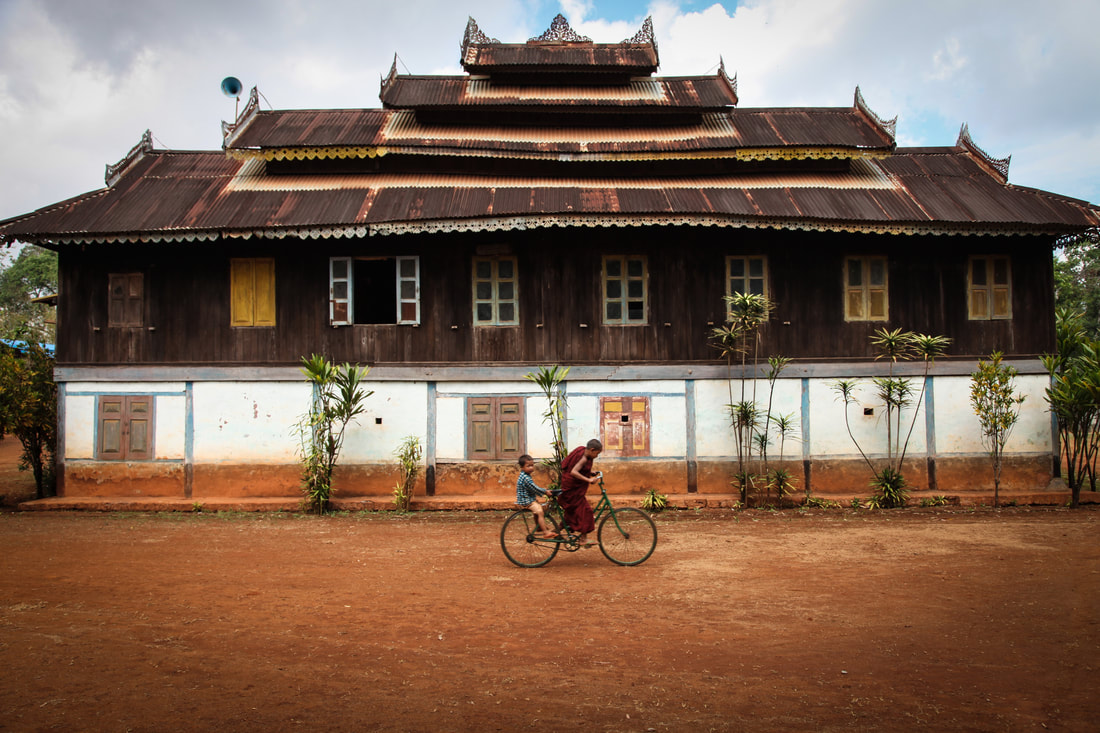
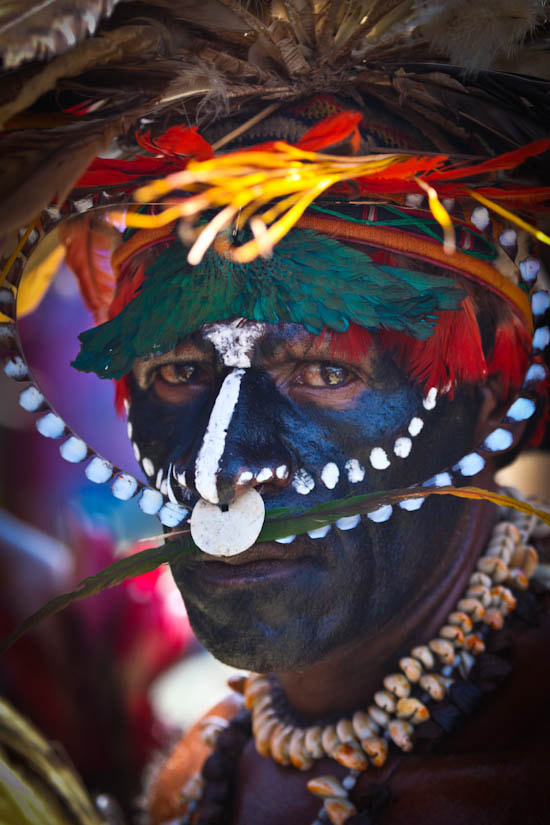
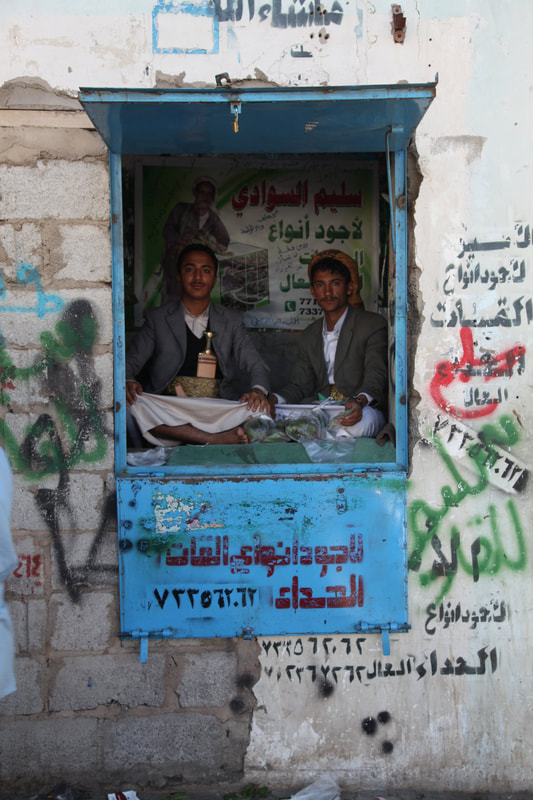
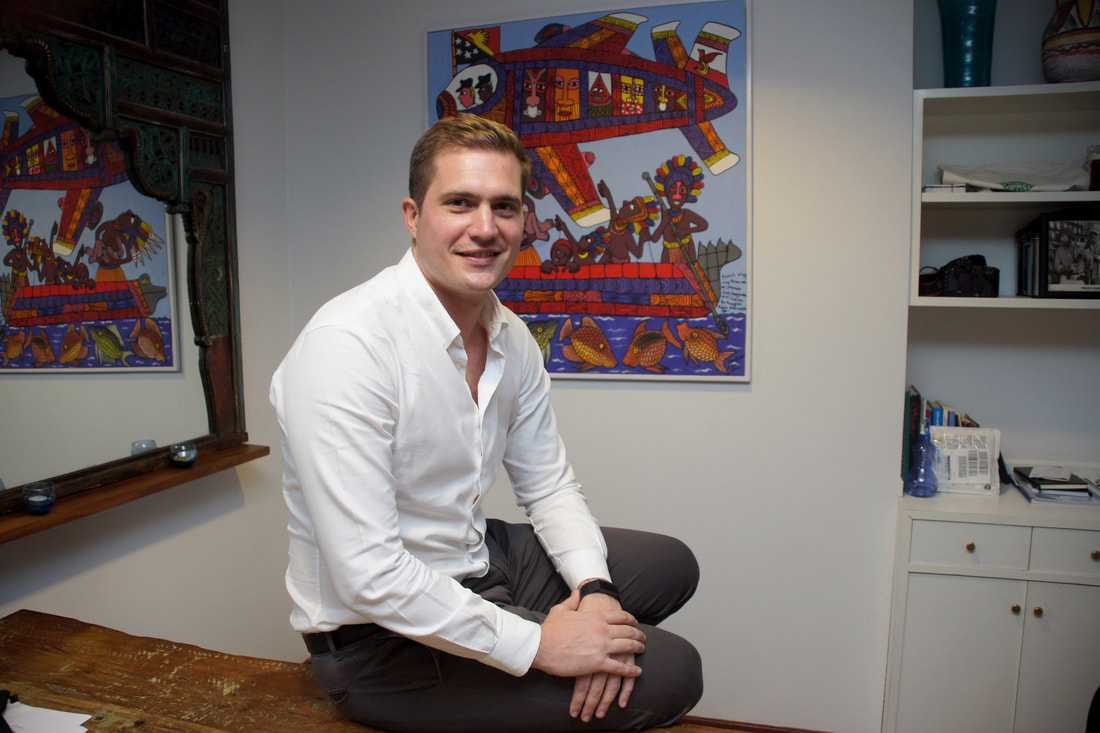
 RSS Feed
RSS Feed
















